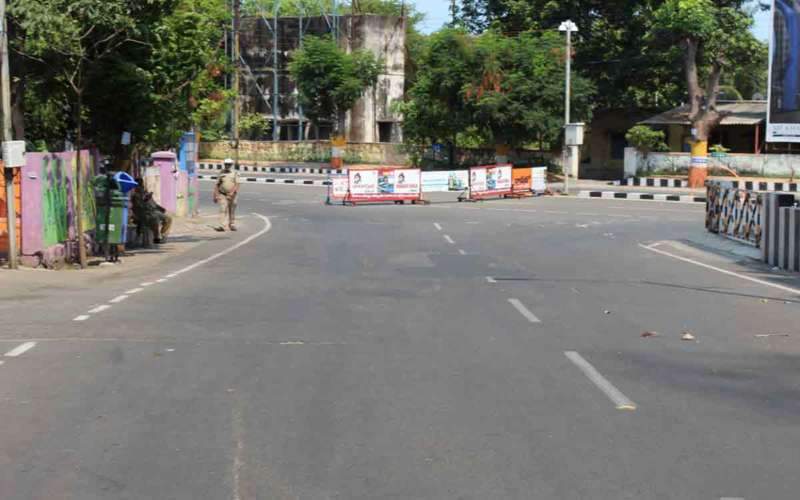The Ministry of Home Affairs (MHA), Government of India, extends the ongoing lockdown till May 31, 2020. The Ministry additionally also issued a list of guidelines to regulate various activities that are prohibited and permitted during the lockdown 4.0.
The country has been divided into three district-wise zones: green, orange and red. However, there are also rules, which are applicable to the entire country as a whole, irrespective of the zone in which a region falls.
Guidelines on the measures to be taken by Ministries/ Departments of Government of India, State UT Governments and State IT Authorities for containment of COVID-19 in the country up to 31 May, 2020. Lockdown to remain in force up to 31st May, 2020. Here is a list of activities prohibited and permitted during the lockdown 4.0
MHA issues order to further extend #lockdownindia till 31.05.2020, to fight #COVID19
New guidelines have permitted considerable relaxations in #Lockdown4 restrictions. States to decide various zones, taking into consideration parameters shared by @MoHFW_INDIA#IndiaFightsCOVID19 pic.twitter.com/AeMHvowaaH— Spokesperson, Ministry of Home Affairs (@PIBHomeAffairs) May 17, 2020
List of activities prohibited throughout the country:
All domestic and international air travel of passengers, except for domestic medical services, domestic air ambulance and for security purposes or purposes as permitted by MHA.
Metro rail services
Schools, colleges, educational training/ coaching institutions etc. will remain closed. Online distance learning shall continue to be permitted and shall be encouraged.
Hotels, restaurants and other hospitality services, except those meant for housing health/ police/ Government officials/ healthcare workers/ stranded persons including tourists and for quarantine facilities and running of canteens at bus depots, railway stations and airports. Restaurants shall be permitted to operate kitchens for home delivery of food items.
All cinema halls, shopping malls, gymnasiums, swimming pools, entertainment parks, theatres, bars and auditoriums, assembly halls and similar places. Sports complexes and stadia will be permitted to open; however, spectators will not be allowed.
All social/ political/ sports/ entertainment/ academic/ cultural/ religious functions/ other gatherings and large congregations.
All religious places/ places of worship shall be closed for public. Religious congregations are strictly prohibited.
List of activities permitted with restrictions, except in the Containment Zones:
Inter-State movement of passenger vehicles and buses, with mutual consent of the State(s)/UT(s) involved.
Intra-State movement of passenger vehicles and buses, as decided by the States and UTS.
Standard Operating Procedures (SOPs) for the movement of persons, as mentioned in Annexure I, shall continue to operate.
National Directives for COVID-19 Management National Directives for COVID 19 Management, as specified in Annexure I, shall be followed throughout the country.
Containment, Buffer, Red, Green and Orange Zones
The delineation of Red, Green and Orange Zones will be decided by the respective State and UT Governments, after taking into consideration the parameters shared by the Ministry of Health & Family Welfare (MoHFW).Government of India (Gol).
Within the Red and Orange Zones, Containment Zones and Buffer Zones will be demarcated by the District authorities, after taking into consideration the guidelines of MOHFW
In the Containment Zones, only essential activities shall be allowed. There shall be strict perimeter control to ensure that there is no movement of people in or out of these zones, except for medical emergencies and for maintaining supply of essential goods and services. Guidelines of MoHFW shall be taken into consideration for the above purpose
In the Containment Zones, there shall be intensive contact tracing, house-to-house surveillance, and other clinical interventions, as required
Night curfew
The movement of individuals shall remain strictly prohibited between 7.00 pm to
7.00 am, except for essential activities Local authorities shall issue orders, in the entire area of their jurisdiction, under appropriate provisions of law, such as prohibitory orders (Curfew] under Section 144 of CrPC, and ensure strict compliance
Protection of vulnerable persons
Persons above 65 years of age, persons with co-morbidities, pregnant women, and children below the age of 10 years, shall stay at home, except for essential and health purposes.
All other activities will be permitted, except those which are specifically prohibited.
However, in Containment Zones, only essential activities shall be allowed, as mentioned in para 5(ill) above.
Further, States/ UTs, based on their assessment of the situation, may prohibit certain other activities in the various zones, or impose such restrictions as deemed necessary.
Use of Aarogya Setu
Aarogya Setu enables early identification of potential risk of infection, and thus acts as a shield for individuals and the community.
With a view to ensuring safety in offices and workplaces, employers on best effort basis should ensure that Aarogya Setu is installed by all employees having compatible mobile phones.
District authorities may advise individuals to install the Aarogya Setu application on compatible mobile phones and regularly update their health status on the app. This will facilitate timely provision of medical attention to those individuals who are at risk
Special directions to ensure the movement of persons and goods in certain cases
All States/ UTs shall allow inter-State and intra-State movement of medical professionals, nurses and paramedical staff, sanitation personnel and ambulances, without any restriction
All States/UTs shall allow inter-State movement of all types of goods/ cargo Including empty trucks.
No State/UT shall stop the movement of any type of goods/ cargo for cross land-border trade under Treaties with neighbouring countries
Strict enforcement of the guidelines
State UT Governments shall not dilute these guidelines issued under the Disaster Management Act, 2005, in any manner
All the District Magistrates shall strictly enforce the above measures.
In order to implement these measures, the District Magistrates will deploy Executive Magistrates as Incident Commanders in the respective local jurisdictions. The Incident Commander will be responsible for the overall implementation of these measures in their respective jurisdictions
Penal provisions
Any person violating these measures will be liable to be proceeded against as per the provisions of Section 51 to 60 of the Disaster Management Act, 2005, besides legal action under Sec. 188 of the IPC, and other legal provisions as applicable. Extracts of these penal provisions are at Annexure III.










Discussion about this post